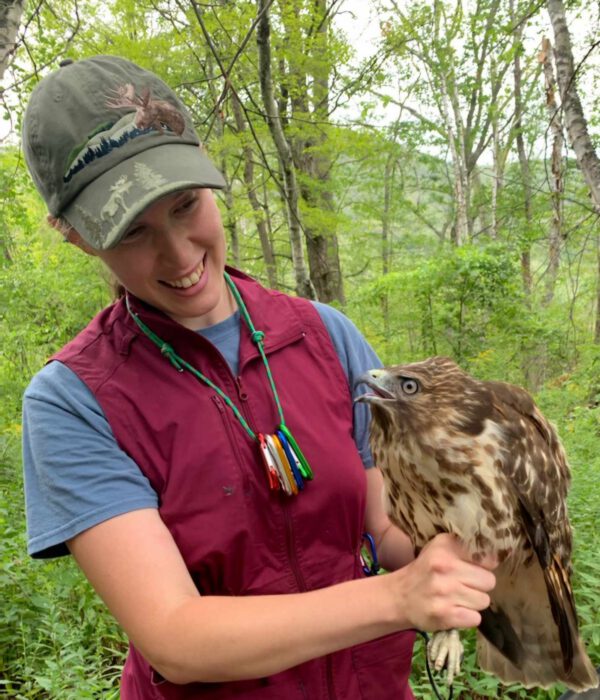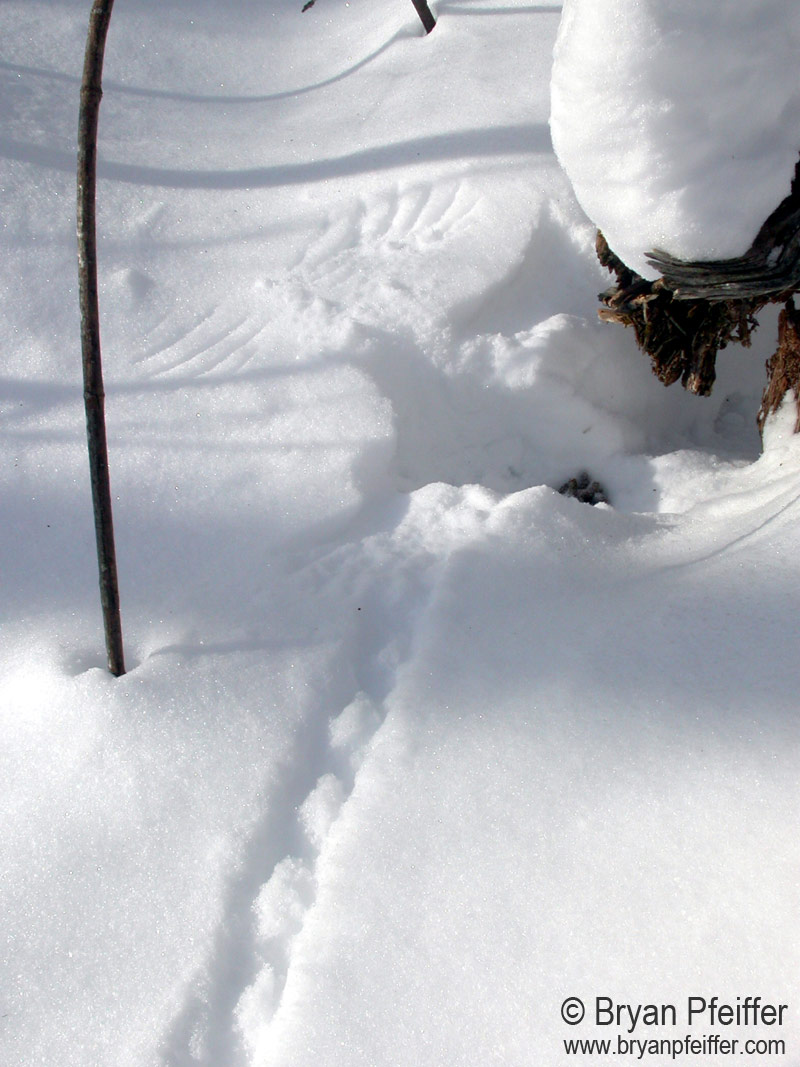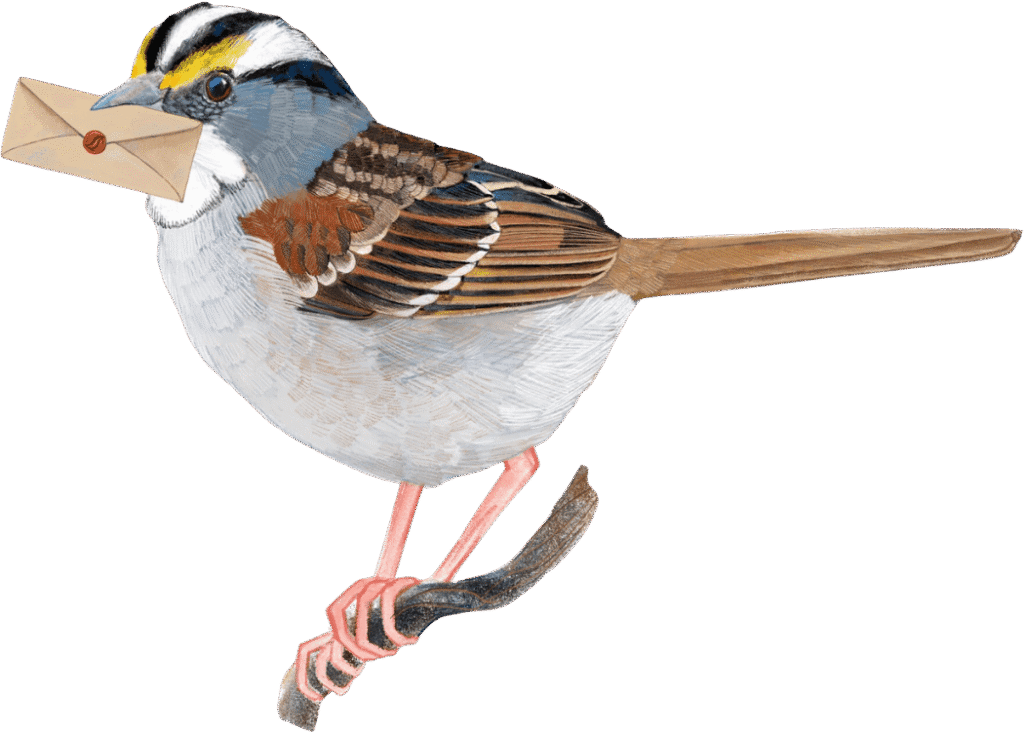Wing Prints
By Kent McFarland and Bryan Pfeiffer

© Kent McFarland
With all the early snow in the U.S. this winter, birds have been making impressions – literally. We’re seeing various wing prints in the snow. It makes us wonder about the reliability of identifying prints made here in Vermont – most likely by Barred Owl, Great Horned Owl, Ruffed Grouse or Wild Turkey. Can we get them right? Well … not always.
 Your first step should be to look beyond the wing print. The footprints of Wild Turkey or Ruffed Grouse are distinctive. Grouse scat can offer another clue. We’ve seen grouse scat in various wing prints that might otherwise look a lot like it came from an owl.
Your first step should be to look beyond the wing print. The footprints of Wild Turkey or Ruffed Grouse are distinctive. Grouse scat can offer another clue. We’ve seen grouse scat in various wing prints that might otherwise look a lot like it came from an owl.
But what about prints alone – without any other clues? Bryan assembled wing scans (from the Slater Museum of Natural History at the University of Puget Sound) for a general guide to wing shapes (these are not presented to scale).
Even so, we’ve concluded that a bird taking off or landing can vary the wing position far too much for the presentation of consistent patterns. Rarely do we find a perfect impression. We can sometimes recognize pointed outer primaries on a Wild Turkey. So perhaps you might use the turkey footprints to clue you in to this print and learn the pattern.
Beyond that, identification with certainty is fraught. We can’t use feather counts; and wingspan has its problems. Published wingspan measurements assume the wings are completely spread out on the horizontal. And, even if they are spread fully in the wild, Barred and Great Horned owls overlap in size.
Even then, how would we determine that the print was made on a perfect horizontal? Most of what we see in the field can be 20 to 30 degrees off horizontal. To adjust, we’d have to employ trigonometry.
So, unless we find foot prints or scat, we’ve decided to dispense with the math – and simply enjoy these avian snow angels.



I have a near perfect eagle impression. I plan to post it soon, It is astounding!
savedsure@gmail,com
Be sure to put a link here so we can see it!
____________________________
Kent McFarland
Vermont Center for Ecostudies
PO Box 420 | Norwich, Vermont 05055
802.649.1431 x2
Here are a couple other species from the recent snow storm (some background information helped in both IDs):
Ring-necked Pheasant
https://www.flickr.com/photos/61161297@N08/16022757602/in/photostream/
American Crow
https://www.flickr.com/photos/61161297@N08/16024121055/in/photostream/
Hello. Is there a book that types raptor species by their wing impressions in snow? Or a more general book typing not just raptor species – but other species as well? Thanks. ~Valerie~ Buford, CO